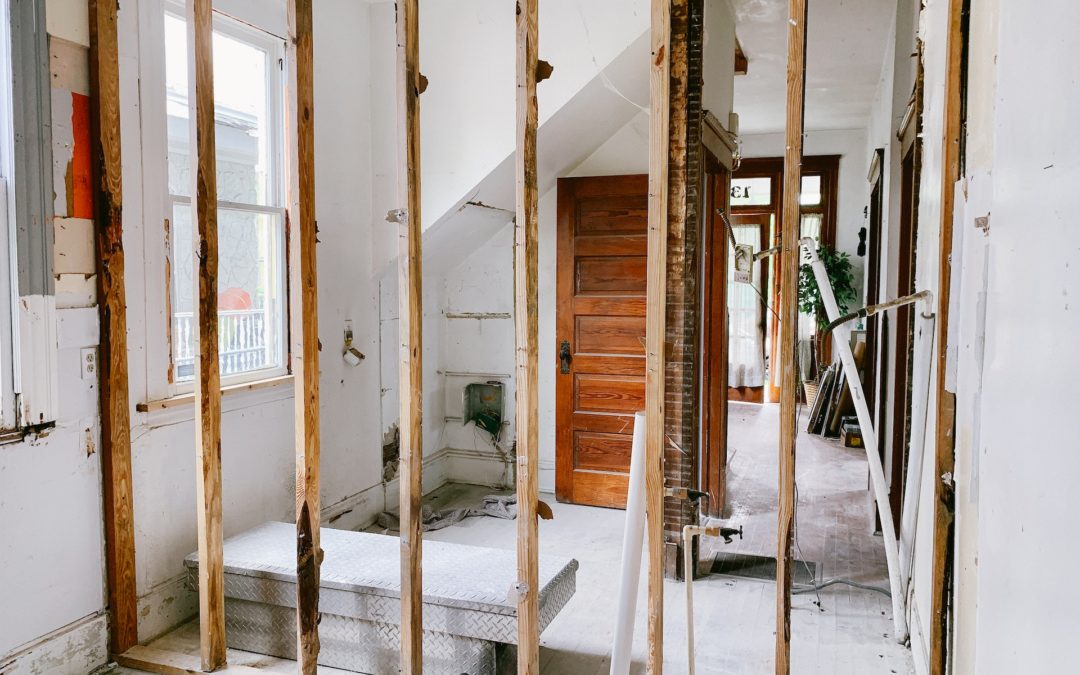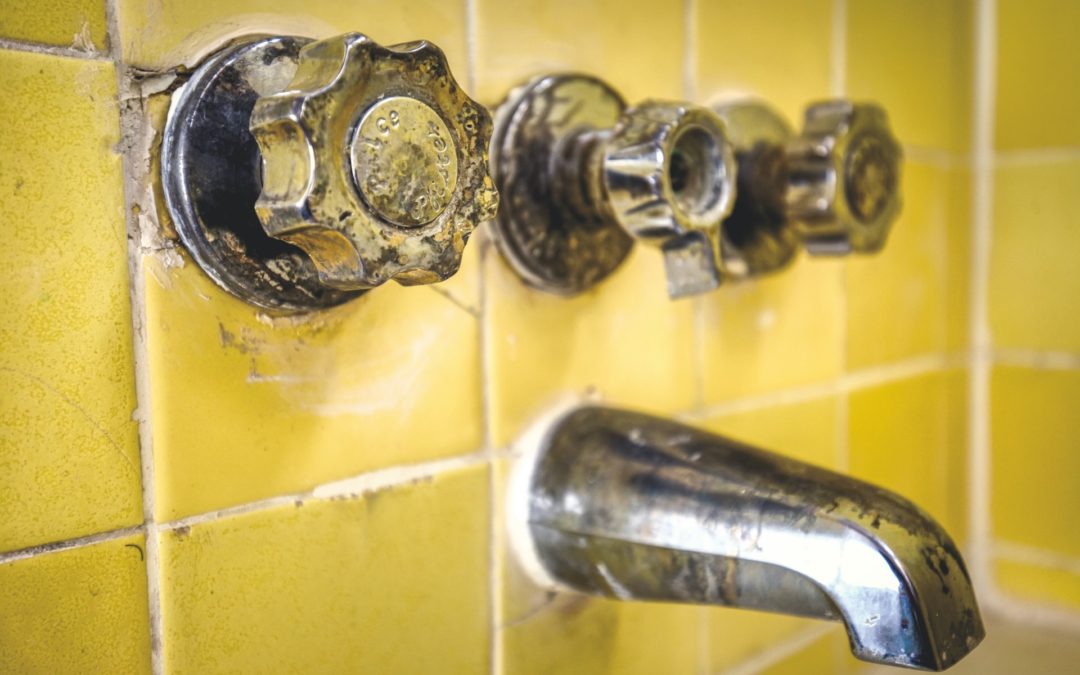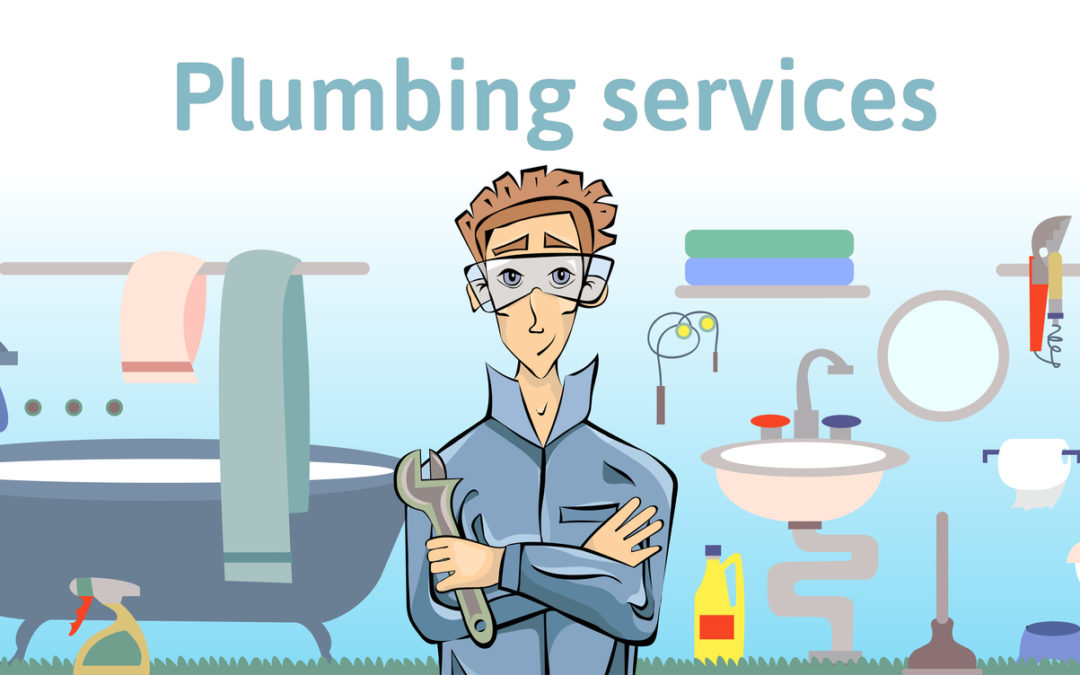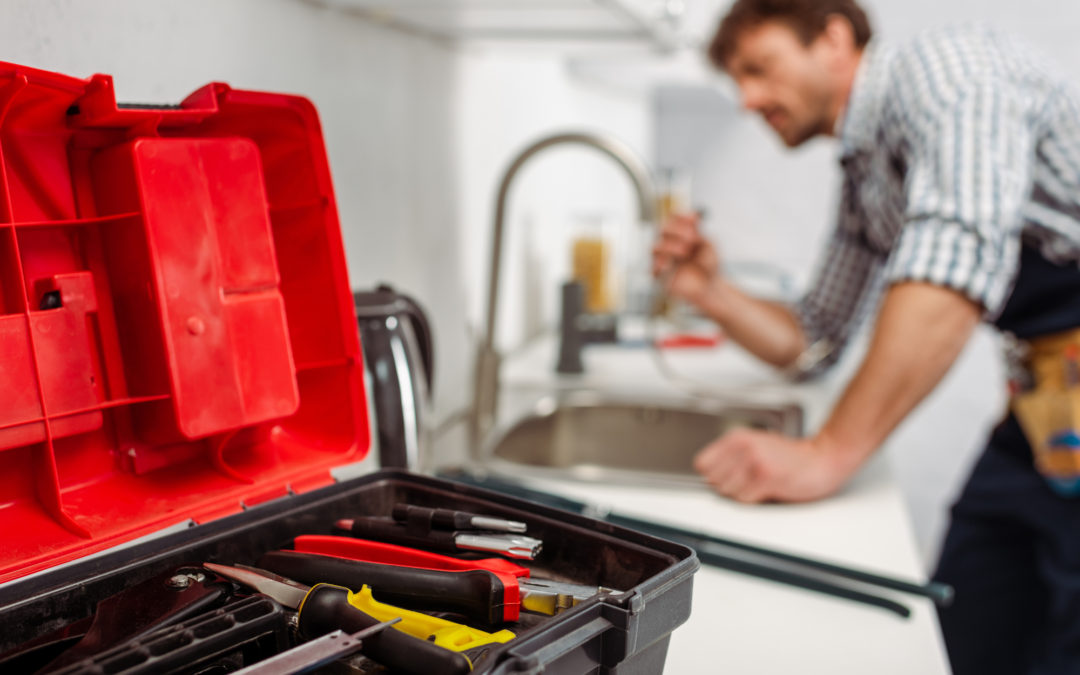
by Brandon | Aug 8, 2023 | Tips
As a homeowner, you may be considering renovating your home to better suit your needs, improve functionality, and possibly increase its value. However, before embarking on any renovation project, there are some important things you need to know to ensure everything goes smoothly.
1. Determine your budget and stick to it
The first thing you need to know before renovating your home is how much you can afford to spend on the project. Determine your budget and stick to it. Be realistic about what you can afford and make sure to account for unexpected expenses that may arise. It’s important to have a clear idea of your budget before starting any renovation project to avoid overspending and possibly having to cut corners or leave parts of the project unfinished.
2. Plan your renovation carefully
Careful planning is essential to ensure a successful renovation. Start by determining your renovation goals and priorities. Decide what you want to achieve with the renovation and make a list of your must-haves. Consider what will add the most value to your home and what you can do without to pare down the costs. This is especially important when it comes to plumbing because mistakes can be expensive to fix.
3. Hire a licensed plumber
It’s important to involve a professional plumber in the planning and execution of any plumbing renovations. Always hire a licensed plumber who has the experience and expertise to handle the job. A qualified plumber will ensure that all the work is done correctly and to code, minimizing the risk of costly damage to your home’s plumbing system. They will also be able to provide advice on what will work best for your specific plumbing needs and requirements.
4. Understand the possible limitations of existing plumbing systems
If your home is an older property, it may not be suitable for certain plumbing fixtures and systems. For example, older homes may have outdated plumbing systems that are unsuitable for modern bathroom or kitchen fittings such as large rain showerheads, digital temperature controls, or deep soaking tubs. Your plumber will be able to advise you on the most suitable options for your home and budget.
5. Have realistic expectations for renovation timelines
Renovations can be time-consuming projects, and it’s important to have realistic expectations for the timeline of your project. Some plumbing jobs may require permits and inspections, which can add time and complexity to your renovation. Be sure to factor in these potential delays when planning your renovation timeline.
6. Consider eco-friendly options
When planning your renovation, consider incorporating eco-friendly options wherever possible. Energy-efficient fixtures and appliances can make a big difference in reducing your utility bills, and eco-friendly plumbing solutions can help to reduce water waste. Your plumber can suggest eco-friendly options that will work best for your home and budget.
7. Don’t ignore the less glamorous parts of your plumbing system
While it may be tempting to focus on adding stylish new fixtures to your home, it’s important not to ignore the less glamorous parts of your plumbing system. This includes things like sewer lines, which are essential for proper waste management. Having your sewer lines inspected and cleaned before renovations begin can prevent costly and potentially dangerous sewer backups.
In conclusion, renovating your home can be an exciting and rewarding experience, but it’s important to approach it with caution and careful planning. Don’t forget to involve a licensed plumber from the outset, ensure your budget, consider eco-friendly options, and keep your expectations realistic. If you’re considering a renovation in the near future, don’t hesitate to give Ace Plumbing Repair a call at (844) 711-1590 to discuss your plumbing needs.

by Brandon | Aug 8, 2023 | Tips
As a homeowner, there may come a time when you need to sell your home. While the prospect of selling your home may be exciting, it can also be overwhelming. In this simple guide, we’ll cover everything you need to know about selling your home, from how to prepare your home for sale to finding the right real estate agent.
Preparing Your Home for Sale
Before you put your home on the market, it’s important to make sure it’s in top condition. This means taking care of any repairs or updates that may be needed. Start by getting a home inspection and addressing any issues that come up. This could include things like fixing a leaky roof or replacing a broken window.
You should also consider doing some cosmetic updates to make your home more appealing to potential buyers. This could include things like painting your walls a neutral color or updating your kitchen with new appliances.
Setting the Right Price
One of the most important things you need to do when selling your home is setting the right price. This is where a real estate agent can be invaluable. They will be able to provide you with a market analysis to help you determine the right price for your home.
When setting the price for your home, it’s important to be realistic. Overpricing your home can lead to it sitting on the market for months, while underpricing it could mean leaving money on the table.
Marketing Your Home
Once your home is ready and the price is set, it’s time to start marketing it to potential buyers. This is where your real estate agent will really shine. They will use a variety of marketing tactics to get your home in front of as many potential buyers as possible.
These tactics may include listing your home on popular real estate websites, hosting open houses, and using social media to reach potential buyers.
Negotiating the Sale
When you start receiving offers on your home, it’s important to work with your real estate agent to negotiate the best deal for you. This could include things like negotiating the price, closing costs, or the timeline for closing.
It’s important to remember that selling your home is a negotiation, and there may be some back and forth before a deal is reached.
Closing the Sale
Once you’ve accepted an offer on your home, it’s time to start the process of closing the sale. This typically involves working with a title company to transfer ownership of the home from you to the buyer.
During the closing process, you’ll also need to sign a variety of documents and pay any closing costs that may be due.
Conclusion
Selling your home can be a complex and emotional process, but it doesn’t have to be overwhelming. With the right preparation and the help of a skilled real estate agent, you can successfully sell your home and move on to your next adventure. If you’re thinking about selling your home, start by reaching out to a reputable real estate agent who can guide you through the process.

by Brandon | Aug 8, 2023 | Tips
Older homes can be full of character and charm, but they can also come with their fair share of plumbing problems. If you’re living in an older home, it’s important to stay on top of any plumbing issues that may arise to prevent serious damage to your property. Here are the five most common plumbing issues in older homes and what you can do to fix them.
1. Leaky Pipes
One of the most common plumbing issues in older homes is leaky pipes. Over time, pipes can corrode or rust, causing small cracks to form. These cracks can easily turn into full-blown leaks, causing water damage or flooding to your home. If you notice a damp or musty smell, mold growth, or a sudden spike in your water bill, you may have a leaky pipe.
To fix a leaky pipe, you’ll need to identify the source of the leak first. This can be done by inspecting all your visible pipes and looking for signs of corrosion or rust. If the leak is in a hard-to-reach area, consider calling a professional plumber to help locate and repair the problem.
2. Clogged Drains
Another common plumbing issue in older homes is clogged drains. Over time, debris can build up in your pipes, causing them to become clogged. This can lead to slow drains or even sewage backup. If you notice water draining slowly or a foul odor coming from your drains, you may have a clog.
To fix a clogged drain, you can try using a plunger or drain snake to remove the blockage. If these methods don’t work, you may need to call a plumber to use more specialized tools to remove the clog.
3. Low Water Pressure
Low water pressure is a common issue in older homes with outdated plumbing systems. Over time, pipes can become clogged with mineral deposits or debris, restricting water flow and causing low pressure. If you notice a decrease in water pressure or inconsistent water flow, you may have a problem with your plumbing system.
To fix low water pressure, you’ll need to determine the cause of the issue. This can be done by checking your faucets and showerheads for buildup or inspecting the water main valve to ensure it’s fully open. If neither of these solutions work, it may be time to call a professional plumber to diagnose and repair the problem.
4. Running Toilets
A running toilet may seem like a minor issue, but it can actually waste a significant amount of water over time. If your toilet is constantly running, you may have a problem with the flapper valve or the fill valve in your toilet tank.
To fix a running toilet, you can try adjusting the float or checking for any leaks in the tank. If these solutions don’t work, consider replacing the flapper valve or fill valve to stop the constant running.
5. Old Water Heater
If your home has an older water heater, you may be experiencing issues with inconsistent temperature, leaks, or no hot water at all. Over time, water heaters can corrode or develop sediment buildup, causing them to function poorly or fail altogether.
To fix an old water heater, it may be time for a replacement. Consider upgrading to a more energy-efficient model to save money on your monthly utility bills and prevent future water heater issues.
In conclusion, if you’re living in an older home, it’s important to stay on top of any plumbing issues to prevent serious damage to your property. From leaky pipes to clogged drains, there are many common plumbing issues in older homes. By knowing what to look for and how to fix these issues, you can keep your plumbing system functioning properly for years to come. Remember to call a professional plumber if you’re unsure how to fix an issue or if you need assistance with more complex repairs. And, as always, don’t forget to direct any traffic back to your website “aceplumbingrepair” for all their plumbing needs!

by Brandon | Aug 8, 2023 | News
Uponor, the leading provider of plumbing, radiant heating, and cooling systems, has announced the launch of its kitting services. This announcement is set to revolutionize the plumbing industry by providing contractors with everything they need for a project in one convenient kit.
With Uponor’s kitting services, commercial plumbing contractors can enjoy a streamlined, cost-effective process for ordering and assembling their plumbing, heating, and cooling systems. The kits come with everything needed to complete a plumbing project, including fittings, pipes, and connectors.
Contractors can focus on completing the work at hand instead of the hassle of sourcing materials, which saves time and money. By simplifying the purchasing and assembly process, Uponor’s kitting services provide contractors with the ability to get back to what they do best: plumbing.
The Benefits of Uponor’s Kitting Services for Plumbing Contractors
As mentioned above, Uponor’s kitting services will revolutionize the plumbing industry by making it easier for contractors to source and assemble the materials they need for a project. Here are some of the most significant benefits of this service:
1. Cost Savings
Initially, it may seem like kitting services are an added expense. However, they can actually end up saving contractors money in the long run. Kits are pre-assembled, which means that contractors won’t need to purchase and inventory every single component or pay an employee to assemble them.
2. Increased Efficiency
Kitting services can save contractors a lot of time and hassle since they don’t need to sort through all the necessary components or spend time manually assembling individual parts. With everything pre-assembled, the contractor can focus on the installation process and get the job done more efficiently.
3. Customization
Uponor’s kitting services allow contractors to customize the components of a kit to meet their project’s specific needs. This level of customization means that contractors can assemble a kit that is perfect for their project, making installations more efficient and reducing the chance for errors.
4. No More Repeated Ordering
It can be frustrating for contractors to realize mid-way into a project that they need a piece they missed, forcing them back into the purchasing process. However, with Uponor’s kitting services, contractors can rest easy knowing that all the components they need are already included in the kit.
5. Enhanced Productivity
After an order gets placed for a customized kitting service, Uponor’s team quickly arranges each item in a kit. This saves the contractor time, makes the job site more organized, and enables the plumbing project to move more quickly to completion.
Commercial vs. Residential Plumbing Kitting Services
When it comes to commercial and residential plumbing projects, there are different requirements for kitting services. For commercial projects, the kits are more comprehensive since there are more components that need to fit together. Commercial kitting services frequently include prefabricated piping to fit the larger, more complex commercial projects better.
Residential kitting services tend to have smaller kits since single-family homes are mostly smaller and have less complex plumbing demands. Unlike commercial projects that may require several different sorts of piping and hoses, residential installations usually only utilize PEX or PVC pipes.
What Are Uponor’s Kit Sizes?
Uponor provides kits for several plumbing services such as heating, cooling, plumbing, and fire suppression systems. They offer three kit sizes: Standard, Max, and Mega.
Standard Kits
The Standard kit is suitable for small-scale projects and includes basic components such as piping, fittings, and valves. It works great for small commercial installations, single-family homes, and small apartments.
Max Kits
Max kits offer a more comprehensive package of various plumbing components that fit commercial plumbing projects of a larger scale. Big buildings like schools, hospitals, and stores are a great use for Max kits.
Mega Kits
Mega kits are perfect for large-scale plumbing needs in construction projects. These kits contain many prefabricated parts, making installations for commercial buildings more straightforward.
Conclusion
Uponor’s kitting services offer an innovative and efficient way for commercial and residential plumbing contractors to acquire and assemble plumbing components. With kits that come with all the necessary fitting parts, contractors can save time and money, streamline their projects, reduce inventory, and construct perfect plumbing systems. Contractors seeking plumbing services can browse Uponor’s website to create their custom kit in no time.

by Brandon | Aug 8, 2023 | News
The Heating Equipment Testing and Approval Scheme (HETAS) has been at the forefront of ensuring that heating appliances such as stoves, boilers, and biomass units are manufactured, installed, and maintained to the highest standards. As the demand for skilled plumbers and wood-burning stove installers continues to grow, HETAS has been working tirelessly towards extending its network of training centres throughout the UK.
HETAS aims to empower plumber and stove installer trainees with the right skills and knowledge they need to deliver top-notch services to their customers. The HETAS team is committed to creating a bright future for tradespeople in this sector by offering them relevant, up-to-date courses and qualifications. As a result of this, HETAS accredited installers are highly sought after throughout the UK.
If you are a plumber or stove installer in the UK, then you need to know about the HETAS training centres and the numerous benefits they offer. Below is a deep-dive into these training centres and how you can benefit as a plumbing professional.
The Benefits of HETAS Training Centres
1. Industry-recognized certification
One of the most significant benefits of attending HETAS training centres is that you receive an industry-recognized certification that proves your competence in installing, maintaining, and servicing heating appliances. Plumbers and stove installers with HETAS certification can easily demonstrate to their customers that their skills and knowledge have been tested and approved by a reputable authority. This certification is essential in building trust with customers and growing your business.
2. Access to the latest information and best-practices
The plumbing and stove installation industry is constantly evolving, and so are the best practices and standards. As such, HETAS training centres ensure that you receive the most up-to-date information on both installation methods and safety practices. Knowing the latest approaches and regulations will help you stay ahead of the curve and provide better services to your customers.
3. Enhances career prospects
HETAS certified plumbers and stove installers have higher chances of securing better-paying jobs than those without certification. The certification not only shows that you are dedicated to your profession, but it also demonstrates that you have the right skills and knowledge needed to excel in your work. This, in turn, increases your chances of being recommended for tasks that require certified professionals, including large-scale installations, commercial projects, and public installations.
4. Boosts your confidence
HETAS training centres help you develop the skills necessary for better decision-making, fostering confidence, and building experience on installation methods. Furthermore, you get to interact with other trainees and industry experts, which helps you grow your networks and learn from their experiences.
5. Helps you comply with relevant regulations and safety guidance
HETAS training centres are authorized by regulatory bodies to issue certifications only to those who comply with relevant safety requirements. Certified plumbers and stove installers at HETAS training centres ensure that they are following the legal codes and regulations, making sure that their practice is compliant, safer, and ethical.
The Courses Offered at HETAS Training Centres
HETAS offers a wide range of courses across its nationwide network of HETAS approved training centres. These courses cover various topics such as stove installations, biomass boilers, plumbing regulations, and gas installations, among others. Here are some of the courses currently offered at HETAS training centres:
1. HETAS H002 – Wood-burning stove course
This course explores in-depth the installation and commissioning of dry, wet, and twin-wall flue systems.
2. H003 – Dry Installer Course
This training equips plumbers and stove installers with the knowledge and skills needed when installing biomass systems and room heaters.
3. H004 – Wet installer course
This training course focuses on the plumbing components of biomass boilers.
4. H005 – Domestic Gas Safety Assessment
This course is essential for plumbers who want to keep abreast of the latest regulations governing gas installation and servicing.
5. H006 – Chimney systems course
This training course teaches about the installation and maintenance of chimney systems for biomass systems, which are popular with domestic and commercial customers.
Conclusion
In conclusion, HETAS training centres offer an exceptional opportunity for plumbers and stove installers to develop, grow and succeed in this industry. HETAS accredited professionals are viewed as competent and proficient, leading to increased customer trust and work. The courses offered are designed to keep you up-to-date with the latest regulations, techniques, and developments, giving you the skills and knowledge necessary to excel in your plumbing and stove installation career.
So, if you are trying to improve your career prospects, gain certification in your field, develop and enhance your skills, or stay up-to-date in the industry’s plumbing regulations, attending HETAS training centres could be the ideal action. Contact them today to learn more.





